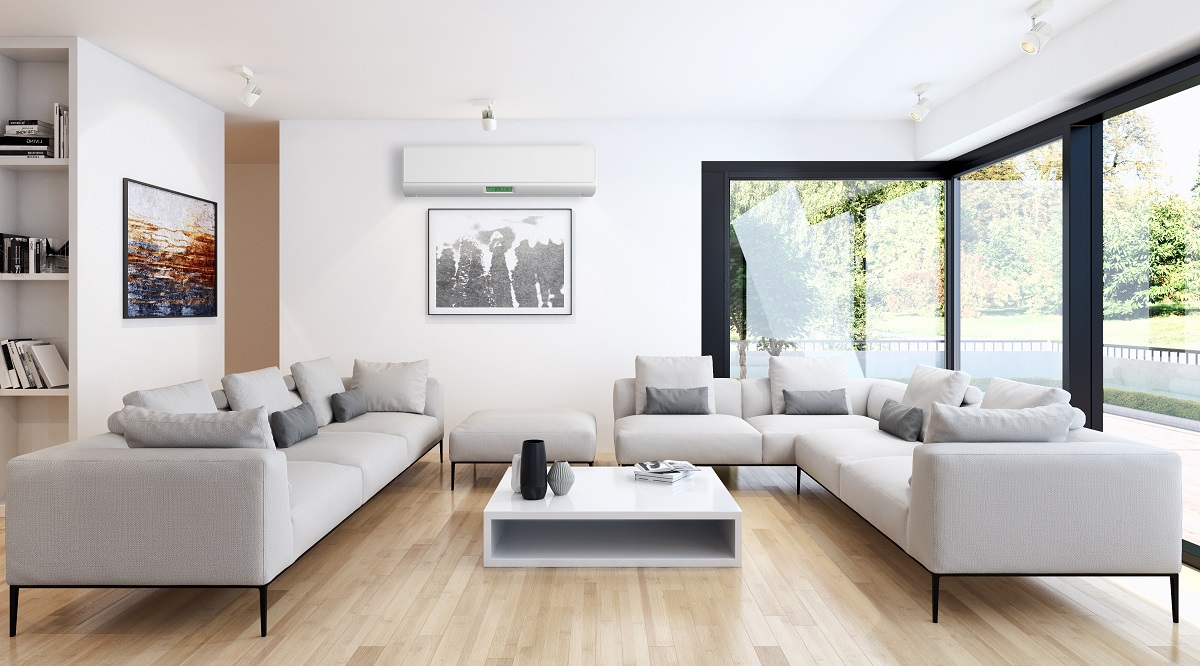Using air conditioning to cool your home and office gives a comfortable indoor environment in every season. However, the energy consumption can be high. According to the Department of Energy, air conditioners use 6% of the electricity generated in the United States. Homeowners spend about $29 billion annual costs on air conditioning. These numbers make it clear that homeowners need to come up with strategies for reducing energy used in air conditioning.
It might be hard to balance between your home comfort and the skyrocketing energy bills. But, the good news is that you don’t have to endure hot temperatures to save on your energy bills. With some preventative measures and maintenance, you will get to enjoy lower energy bills even during summer.
How you can reduce your cooling costs
-
Upgrade your windows
If your existing windows are old, then they are not energy efficient. Windows are accountable for 25% to 30% of heating and cooling energy. This shows how important your windows are in improving their efficiency.
To reduce your energy bills, consider reducing the energy loss through your windows. This will help you save on your monthly energy bills and make your home comfortable. You have two options if you hope to reduce the energy lost through your windows. You can either update your windows or replace them.
If your windows are in good condition, you can improve their efficiency by checking for air leaks, adding exterior shading, and caulking. If your windows are old, you may consider replacing them. You may consider replacing your windows in their existing frame if you don’t want to invest a lot. Upgrading your windows will help you significantly reduce your electrical bills.
-
Seal air leaks
Consider checking your windows, doors, and other areas for any air leaks. If your doors and windows are not well sealed, the cooled air leaves the room while hot air enters. Therefore, your air conditioner will have to work harder to maintain the temperature and to cool your room. As a result, this takes a toll on your electrical bills.
Sealing any air leaks will prevent air from leaving the room, reducing the need to use your air conditioner. This will save energy and reduce your monthly electrical bills. To start, locate any openings in your home. Consider checking around sources of leaks and gaps such as door and window frames, attic entrances, and air ducts, among others. Checking many areas will help you capture every gap. Interesting, right? You can then proceed towards caulking and sealing all leaks and cracks.

-
Inspect the HVAC air filters
Air filters are not only important in keeping your HVAC system run smoothly. It also helps in keeping your air conditioning costs low. They also help in preventing airborne pathogens from spreading around your house and blocking the vents. They also help in promoting air circulation. Dirty filters will make your HVAC system work harder to give clean air. You may end up having an increased energy bill.
Although air filters are important, they are an overlooked element of the HVAC system. You have to ensure that the air filters are regularly checked and replaced to save on energy, prevent HVAC system damage, and efficiently blocking off dust particles. Now that you know how important air filters are, you should consider having your HVAC air filters replaced.
Since inspecting the HVAC system may be a challenging task for you, it’s important to contact an HVAC company for professional services related to your HVAC system. Remember, HVAC experts will help you change HVAC air filters and inspect the overall system for any issue.
-
Close blinds and curtains
There’s nothing better than staring out your windows at the clear and beautiful blue sky. However, the windows can increase the temperatures in your home from the hot sun. You may end up turning on your air conditioner throughout the day. Remember, the more your air conditioner stays on, the higher your energy bills will be.
When it’s warm or hot, consider closing any blinds and curtains. This will keep the sun’s rays from entering through your windows. According to consumer reports, reflective blinds reduce heat gain by 45%. By closing your windows, blinds, and curtains, you won’t have to run your air conditioning all the time to maintain the temperature.
-
Switch the AC off when you don’t need it
You would be surprised how careless people can be when it comes to turning the air conditioning off. Consider switching off the AC when not using a room. Also, when leaving the house, turn off the air conditioner.
Although this sounds simple, many homeowners forget to turn off their air conditioners when going out of their homes. Save yourself some money by turning off your AC when you don’t need it.
These are just some steps that you can take to reduce your cooling costs. Implementing these tips will assuredly save you money on your energy bills.